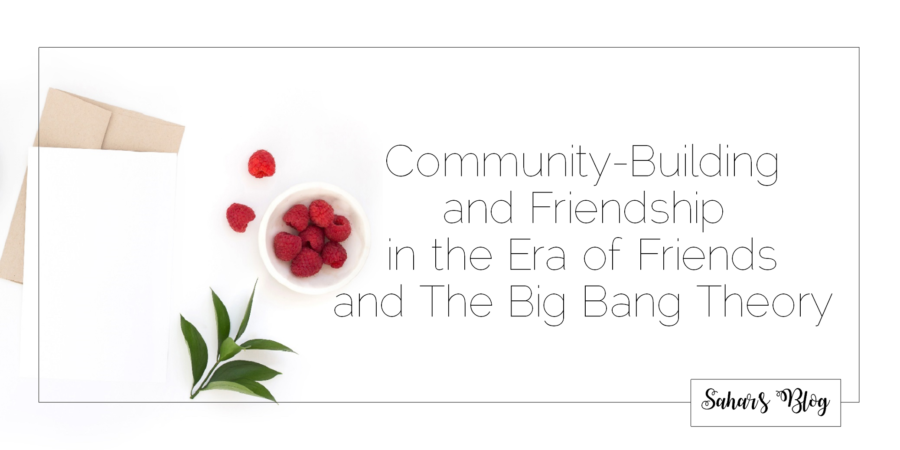A community is in part defined by the relationships that binds its inhabitants. More specifically, the number of relationships, their nature, and their quality will have a big influence on the life the community.
Beloved Shows…
Both Friends and The Big Bang Theory have given millions of fans something that seems to be, on screen, very healthy: a close group of friends we can spend time with, talk to about anything, go on trips with, and who will be there for you during the toughest and best times of your life.
…Gone Rogue?
Although I still love both shows, an alarm bell regularly rings while watching an episode. Namely, what are these shows telling us about friendship? The characters constantly mock one another other; they tear each other down; they don’t keep one another’s secrets; they use each other’s weakness against them.
Is this really the true meaning of friendship?
Real-Life Implications
Furthermore, can we transform our communities and make the life therein vibrant if all, say, 3,000 people spent the time in the same group of 6-8 people? I have a feeling that not only will community life suffer, but that the nature of the relationships with the small group of friends might become less than loving and nurturing—much like our protagonists in Friends and The Big Bang Theory.
The healthy consuming of media is a recurring topic on this blog. In this case, it is understanding how media is shaping our understanding of friendship and the consequences of these examples on our personal relationships and on the process of building a vibrant community. We often state that the world around us has changed and warrants these developments in interpersonal relationships and community-building. For example, cars make walking to a local store, grocery or otherwise, obsolete, so we don’t cross paths with our fellow community members while walking to the store or shopping. Because of air conditioning, we don’t go outside during the summer as much to cool down in the late afternoon and early evening, and so can’t talk to our neighbours as much. There were fewer distractions—provided by the internet, movies, and television for the most part—and so we would spend more time talking with one another rather than in front of a screen.
A Disturbing Thought
But what if the technological advances are not the issue? Could it be that it’s just easier to live the way the characters in Friends and The Big Bang Theory do, and that we are letting ourselves be lulled by the promise, however false it might be? And what are the consequences of us emulating these examples or thinking of them as the pinnacle of relationships without reflecting on the influence on the community-building process?

